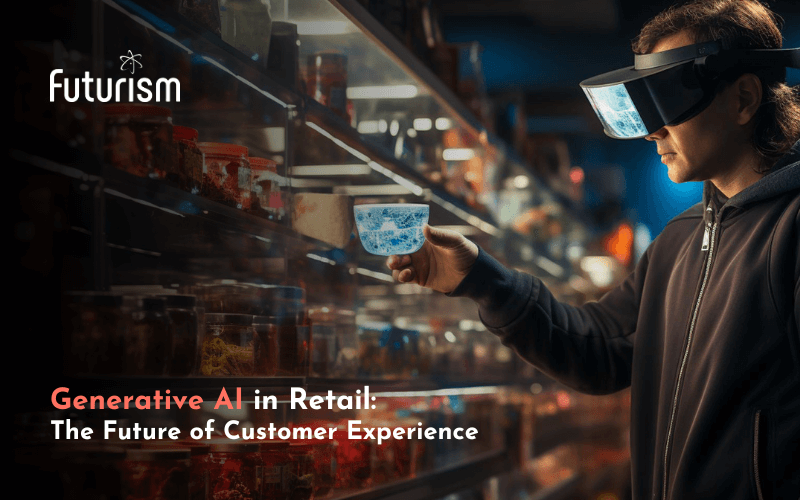In the fast-paced world of retail, staying ahead of the curve is key to business success. As we approach 2025, one technology that continues to redefine the retail landscape is artificial intelligence (AI). Retailers are increasingly turning to AI-powered solutions to streamline operations, enhance customer experience, and optimize business performance. From AI-driven inventory management to personalized shopping experiences, AI is reshaping how businesses interact with their customers and manage their operations.
In this article, we will explore how AI is revolutionizing retail automation, particularly in enhancing the customer experience. By examining the ways in which AI is being applied in retail, we can better understand how it will continue to evolve and transform the industry in the years to come.
The Role of AI in Retail Automation
AI in retail automation refers to the use of advanced technologies, such as machine learning, natural language processing, and computer vision, to automate various tasks within retail operations. These tasks include inventory management, pricing strategies, customer support, personalized marketing, and even in-store experiences. AI systems analyze vast amounts of data to make predictions, automate routine tasks, and deliver tailored experiences to customers.
Retailers today are increasingly adopting AI tools that leverage big data to provide better insights into customer behavior and preferences. These insights allow businesses to create more effective marketing campaigns, offer personalized product recommendations, and streamline inventory management. AI-driven automation also helps businesses deliver a seamless customer experience both online and in-store, fostering greater engagement and loyalty.
As customer expectations continue to rise, the use of AI in retail is expected to become even more prominent. By 2025, AI-powered automation will be an integral part of nearly every aspect of retail operations, fundamentally transforming the way customers shop and interact with brands.
Personalized Shopping Experience with AI
One of the most significant ways AI is enhancing customer experience in retail is through personalization. Customers now expect a shopping experience tailored to their unique needs and preferences. AI enables retailers to deliver this level of personalization by analyzing customer data, such as browsing behavior, past purchases, and demographic information.
AI-powered recommendation engines are increasingly being used to suggest products based on a customer’s preferences. These systems are built using machine learning algorithms that analyze purchase history and browsing activity to predict what products a customer is most likely to buy. For instance, if a customer frequently purchases athletic gear, the recommendation engine will suggest related products such as workout equipment or new sportswear collections. Personalized recommendations create a more relevant shopping experience, leading to higher customer satisfaction and increased sales.
Moreover, AI can personalize the entire shopping journey. Online retailers can use AI-powered chatbots to assist customers, answering questions, guiding them to products, and even processing orders. In physical stores, AI-powered kiosks or virtual assistants can help customers find the right products, provide detailed information about features and benefits, and even suggest complementary items. This level of personalization helps retailers build stronger relationships with their customers and increases the likelihood of repeat business.
AI-powered personalization is not limited to product recommendations alone. Retailers can use AI to create personalized marketing campaigns as well. By analyzing customer behavior and preferences, AI tools can segment customers into various groups and deliver targeted messages that resonate with each group. Whether through email marketing, social media ads, or in-app notifications, personalized marketing campaigns foster greater engagement and improve conversion rates.

AI-Driven Inventory and Supply Chain Management
Efficient inventory management is crucial to maintaining a seamless retail experience. AI is transforming how retailers manage their inventory by enabling them to make smarter decisions based on real-time data. With AI-powered tools, retailers can optimize stock levels, reduce overstocking or understocking, and predict demand more accurately.
Machine learning algorithms are used to analyze historical sales data, seasonal trends, and external factors such as weather patterns or local events to forecast demand for products. This allows retailers to adjust their inventory levels accordingly, ensuring they have enough stock to meet customer demand without overstocking, which can tie up valuable resources.
In addition, AI can help retailers streamline their supply chains by predicting potential disruptions and suggesting alternative sourcing strategies. AI tools can monitor supplier performance, track shipments, and provide real-time visibility into stock levels, helping retailers manage their supply chains more effectively. By automating inventory and supply chain management with AI, retailers can improve operational efficiency, reduce costs, and enhance the customer experience by ensuring products are available when customers need them.
Enhancing In-Store Experience with AI
While online shopping continues to grow, brick-and-mortar stores remain an essential part of the retail landscape. AI is helping to enhance the in-store experience by improving customer engagement, optimizing store layout, and enabling frictionless checkout.
AI-powered systems such as facial recognition and customer tracking can be used to identify customers as they enter the store, providing a personalized experience from the moment they walk in. For example, if a customer is recognized as a loyal shopper, the system can send personalized offers or recommend products based on their past purchases. This creates a more tailored and engaging experience that encourages customers to spend more time in the store.
AI is also being used to optimize store layouts and product placement. By analyzing customer movement patterns and sales data, AI systems can determine which products are most frequently purchased together and suggest optimal locations for them within the store. This can help increase the likelihood of impulse purchases and drive sales.
Another area where AI is improving the in-store experience is in checkout. Traditional checkout lines can be a pain point for customers, leading to long wait times and frustration. AI-powered checkout systems, such as Amazon Go, are revolutionizing the way customers make purchases. These systems use computer vision and sensor technology to track which items customers pick up and automatically charge them when they leave the store, eliminating the need for traditional checkout lines.
AI for Customer Support and Engagement
Customer service is a critical aspect of the retail experience, and AI is enhancing the way businesses interact with customers. AI-powered chatbots and virtual assistants are becoming increasingly common, providing customers with instant support and answers to their questions. These tools use natural language processing (NLP) to understand customer inquiries and provide relevant, accurate responses.
For example, if a customer has a question about a product’s availability, an AI chatbot can quickly check the store’s inventory and provide the customer with real-time information. If the customer needs help placing an order, the chatbot can assist with the process, making it faster and more efficient. AI-powered customer service is available 24/7, providing customers with the flexibility to get help whenever they need it.
Beyond chatbots, AI can also be used to monitor customer feedback across various channels, such as social media, online reviews, and customer surveys. By analyzing sentiment and trends in customer feedback, AI can help retailers identify areas for improvement, respond to customer concerns, and adjust their strategies to enhance the overall customer experience.
Future Business Trends in Retail
As AI continues to evolve, it will undoubtedly have a significant impact on business trends in retail. The use of AI in retail is becoming more widespread, and the technology will continue to drive innovations in automation, personalization, and customer engagement. In particular, AI will be essential for businesses looking to stay competitive in the rapidly changing retail landscape.
Retailers will need to embrace AI to meet the demands of the next generation of consumers, who expect personalized, seamless, and convenient shopping experiences. The integration of AI in areas such as supply chain management, inventory optimization, customer support, and marketing will allow retailers to become more agile, efficient, and customer-centric. In the future, businesses that successfully leverage AI will be better positioned to thrive in the face of emerging challenges and opportunities.
For those exploring startup ideas in the retail space, AI presents an exciting opportunity to innovate and disrupt traditional business models. Startups focused on AI-driven solutions for retail automation will play a key role in shaping the future of the industry. Whether it’s creating new AI-powered tools for customer engagement, optimizing supply chain management, or enhancing in-store experiences, the potential for innovation is vast.
Conclusion
AI in retail automation is transforming the customer experience and will continue to do so as we approach 2025. From personalized shopping recommendations to AI-powered inventory management and seamless in-store experiences, AI is enabling retailers to deliver more tailored, efficient, and engaging interactions with their customers. As the retail landscape becomes increasingly digital and customer-centric, embracing AI will be essential for businesses looking to stay competitive.
For businesses looking to leverage AI in their operations, staying informed about AI and automation trends and advancements is crucial. Those who embrace AI technologies and automation solutions will not only improve their operational efficiency but also position themselves to thrive in the future retail environment. AI is reshaping retail, and those who harness its potential will lead the way in providing exceptional customer experiences in 2025 and beyond.

